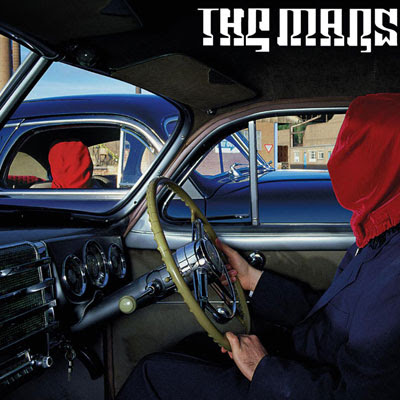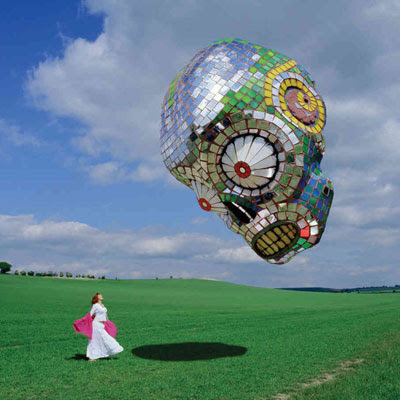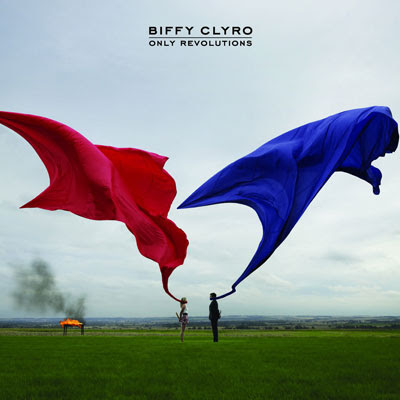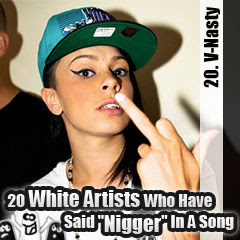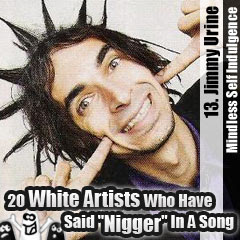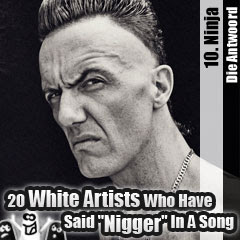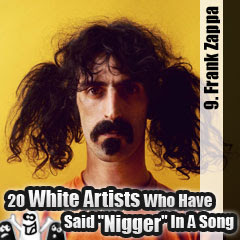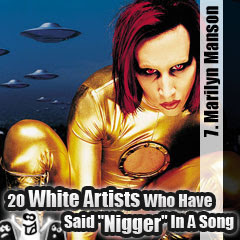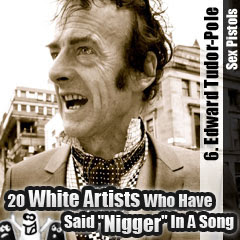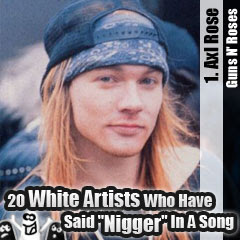 Preface
PrefaceWe all have our own life stories. Parts of our existence which stand out stronger in our recollections; events which define who we are. And music was always there, playing as our soundtrack, songs securing themselves to these specific occurrences and people, refusing to let go (whether we want them to or not). This is my story, avoiding the temptation of reviewing these albums as the pieces of art they are, but rather where they fit into my coming of age, and how they helped along the evolution of what made me who I am today. These albums were not chosen to fit the story. The story was built up around them, and in that way, they chose me.
But for now, all you need to know is that I was born in the city of Durban, South Africa, 1984, to two loving parents, as the third child of four. Since said birth, my memory has been good to me, and I’ve somehow kept my thoughts in reasonable order and condition throughout many tales of mental abuse and hasty rewiring. However (and upon writing this piece) I came to discover and trip upon a number of potholes, as there were occasional faulty details scattered amongst my usually reliable mind-paths. For example, some of the stated ages may, at times, be a little inaccurate, but I estimated them the best I could, and they shouldn't be drastically far off or effect the journey. Furthermore, certain periods and events could very well be challenged by those who remember them better than me, and to those people: I am truly sorry if I got anything wrong which may muddy your own life story as you recall it. But as golfer Chi Chi Rodriguez so poetically put, “I don't exaggerate - I just remember big”, and this is true. For you must know that none of this story was made up, and is exactly how my mind has written it down. All names are real. All incidents happened. And this, dear reader, is what I am made of. I’d like to welcome you to my life, please enjoy.

Chapter 1:
Cliff Richard - 18 Greatest Hits
Age: 4 years oldI have ample memories from some very young ages, so much so that many of you wouldn’t even accept them as truths. I remember wearing nappies. I remember being breastfed. I even remember bits of my birth itself, albeit a little hazy. So it should come as no surprise that I remember my introduction to music very vividly. It arrived in the form of a dusty cassette tape hidden underneath my parents' record player, which featured this Christian bachelor smirking on the cover. But as much as he was my Elvis, I could never over-credit this entire compilation as my true gateway into the world of organised sound, as I never managed to get past the first track.
The song was called Devil Woman, and little did I know it back then, but this practice of name-dropping St. Lucifer became a predominant fixture of my existence to come, which this story shall soon reveal in great detail. No, instead, at this age I was ignorant to the process of Satan, who had entered my soul at this very early stage to infest my innocent imagination, ultimately turning me into a cat who danced around the living room. I will never fully understand why this happened, except that perhaps at this youthful number, it was the only way The Dark Lord could appeal to my short attention span. But regardless of reasons, there I was, a puppet for the King of Hell, experiencing outbursts as a twisted feline known only as Cliff Richard The Cat, and I wouldn't respond to any other name. The power of this song extended even further than me, also reaching my younger sister, who too was possessed by her own Cliff Richard animal - a dog in her case - and we would perform the song together for anyone who would listen, as part of a daily ritual.
Whilst researching for this article, I asked my little sister if she remembered those traditions, and she assured me she did not. However, what she did recall was that she “used to imagine [Cliff] lived next door, and when he heard me listening to his album, he would come over and take me away. Looking back, that would’ve been super fucked up.” True.
Regardless, The Devil had come to play, but I was oblivious to his arrival. I was new to the world, and only just opening up to what music and life had to offer me.
Other life-changing albums related to this entry:
Rodriguez - Cold Hard Fact

Chapter 2:
George Michael - Faith
Age: 5 years oldNot long after my stint as a feline Cliff Richard incarnation, another song snuck up on my peripheral and consumed my vision. It was the title track from the album in question, Faith, and quickly became my anthem, as well as an in-joke between me and my family members. This is because I was convinced the lyrics went “Gotta have Fanta, Fanta, Fanta”, which was my favourite fizzy beverage at the time, and resulted in much hilarity for my parents. They never corrected my mispronunciation. On the contrary, they encouraged me to perform my rendition for all of their friends, who too were thrilled, clapping and worshipping my attempts. I thought it was because they saw me as some rockstar in the making, not because I was the toddler equivalent of a fucking court-jester. But hey, no press is bad press, and these shows still stand as some of the most well received I have ever done.
However (and what my parents didn’t realise), is that this album had some dark qualities hidden within it - far too dark for a child of my age. For it was here that I learned a new word. A word with so much mystical power, that even though I didn’t fully understand what it meant, I knew it had a specific potency and was definitely not the Christian way. The word, of course, being the fourth of the term I Want Your Sex, and much like the Devil that Cliff introduced me to, George had planted a seed which would blossom into a very poisonous concept, outgrowing me, and devouring my everything.

Chapter 3:
Michael Jackson - Dangerous
Age: 7 years oldSkip ahead a year or so, and music had become one of the main enhancements to my day-to-day. Everything I heard came from the radio, sure, but I also kept ahead of the pack by collecting what were known as Top 40 Cards, which each featured a popular star on the front. These ranged from Aha to Kylie Minogue, from Duran Duran to questionable images of Madonna - the latter of which further fed the sex-shrub George had planted those years before.
But none of these could compare to my prized card of The King of Pop, Michael Jackson himself, which I treated and cared for like a limited edition despite the fact that it was valued the same as any of those badly designed pieces of cardboard. I carried it everywhere with me. I marvelled over it. I spoke to it. It spoke back. I even stared at this one-gloved wonder during Sunday church services when our catholic preacher got boring (which, let’s be honest, was fairly often).
Little did I know it, but I had begun to worship a false idol, which is a practice you will find many times throughout this tale, and a practice I am still known to partake in to this day. But how could I not? And who didn’t really? This was Michael Fucking Jackson, and I wasn’t alone. We all listened to his records. We all hurt ourselves trying to mimic his dance moves. And we all wished we were Macaulay Culkin, molestation or not.

Chapter 4:
Roxette - Look Sharp!
Age: 8 years oldEarly in my primary school years, I met a guy named Richard. He was wickedly smart, creative as all hell, and shat himself at regular intervals. We were inseparable from the moment our paths crossed, and opted to spend our lunch breaks in each other’s exclusive company, ignoring those boys who played sports, preferring to collaborate on monster drawings or spinning intricate lies involving the fictional daughter of Robert Redford. We called her Janet, and told our friends how she used to kiss us after school, which made them very jealous and made us look very cool.
Richard taught me a lot more than just the finer art of telling fibs, and one of those things was that Michael Jackson was far too poppy for any self respecting music lover to dare admit any affection for. By his educated command, I promptly discarded my once prized Jackson trading card like it was a candy wrapper, and then opened up my world to whatever this boy had to offer. And he had a lot. However, it was specifically the band Roxette which always stood out as one of the most appealing sounds on the market. Anything they had released would do, but it was this particular album which I regarded the highest, as even my mother enjoyed the tunes so much that she didn’t mind when I popped the cassette into her car stereo on our way home from school.
More than most, it was the song Dressed For Success that me and my mom would listen to, joyfully singing together, duetting on the chorus. That was until the day she paid a little extra attention to me, only to find me screaming “I gotta get dressed for self-sex!” And she was like “wait, what are you saying there?” and I was like “I dunno!”
A few hours later, we were sitting in my living room as she detailed the ins-and-outs of the birds-and-the-bees. Suddenly, all that stuff George Michael was talking about made much more sense, and I felt as disgusted as I did intrigued. I remain that way to this day.

Chapter 5:
2 Unlimited - No Limits!
Age: 8 years oldSkipping arm in arm with Roxette’s Look Sharp!, was this album, neither one dominating the other, both of them absorbing my consciousness at the exact same time. But while Roxette covered what I then considered to be the “hard rock” side of music (lol), it was this entirely different male/female duo who lead my personal discoveries on two distinct paths.
The first path, was one of high inspiration. As this was another album me and my best friend Richard wholeheartedly agreed upon, we both found ourselves designing album covers for music we hadn’t made yet. I took this a step further, as one afternoon after finding my Dad’s voice recorder, I recorded an entire album worth of a cappella songs, each one about ninjas and the troubles such a profession would entail, and all very much in the 2 Unlimited vein. It was the first real set of songs I ever wrote, and they had manifested into reality, existing on a medium outside of my head. God, what I would do to have that tape in my possession now, and I still pray it turns up one day.
The second path, was the technique of carefree dancing. Richard and I would both jump to our feet at a whiff of the opening track, diving around like miniature ravers on speed, bouncing off the walls and flailing our arms like we were seconds away from an overdose. Little did I know it, but this practice would become even more out of control as we got older.

Chapter 6:
Ace of Base - The Sign
Age: 9 years oldYou can forget every album up until this point. For when me and my best friend Richard first overheard The Sign title track pumping from his older brother’s bedroom, all other music faded into the background, and we became irrationally obsessed. In fact, the following Christmas, my 9 year old self was ecstatic to not only discover a blue walkman hidden under some colourful wrapping, but this original cassette tape too. I now had the tools to listen to my own music, no longer dependent on my parents' equipment, and had in my possession the first real album I’d ever owned. The cheers of holiday spirit and general celebratory conversations were no longer of any concern to me, as I spent the rest of the day turning this tape over and over, listening to it again and again, nearly destroying the thing within 24 hours.
But above everything else, it was the Berggen sisters who really made me feel something in my somewhere. Jenny the brunette was nice and all, but it was the blonde Linn in particular who really blew my thoughts away with her beauty. I’ll even admit that things went a little bit too far, as I would record their music videos and then pause my TV on any given frame that her face appeared. After quickly making sure no one was watching, I’d give the screen a quick kiss right on her lips, and in that way, Linn Berggen was my first kiss ever. It was a love I’d never felt before, as well as one which took awhile for me to ever move on from.

Chapter 7:
Bon Jovi - Cross Road
Age: 10 years oldAt the turn of my first decade, my main music source and best friend Richard had changed schools, and as people do, we drifted apart in the absence. This meant that my usual flow of new music dried up a bit, and I prayed for a new leader to show me the way. This leader temporarily turned out to be my cousin Monique, who had come to Durban to spend a week with our family.
She arrived with prizes, including a set of animal stickers that she shared generously; fake piercings which we wore proudly to freak out the neighbourhood; and a large collection of albums from the band Bon Jovi. They were all there, but Cross Road was, in my eyes, the best one. This was not only because it actually is a best-of compilation, but also because of the featured song Always.
I spent many a lone night with that track, reduced to tears, now believing in the elusive emotion of love that I had been yearning for since my youth, whilst also learning long before I ever needed to, that it wasn’t always going to be roses and kisses. Still to this day, that ballad gets into my heart and pokes around at my valves, despite the fact that I should know better by now.
But more than anything, I had recently begun taking valuable guitar lessons with my grandpa, and confidently armed with a few chords, visited my local music store and spent some pocket money on this album’s official tablature book - which wasn’t cheap. I opened to the Always page, and demanded my grandpa showed me how to play it. He did, it sounded terrible (as any piano driven song would on guitar), and so I threw that book into the darkest corner of my room, swearing off tabs for the rest of my life because they blatantly didn’t work.

Chapter 8:
Nirvana - MTV Unplugged in New York
Age: 10 years oldI can’t be sure whether the death of Kurt Cobain was the catalyst for my premature arrival of depression; or if the man himself had romanticised the idea of misery to the degree that I hastily jumped upon the bandwagon without much thought. But the reasons hardly mattered. What mattered, was that this album (which my brother introduced me to) coincided perfectly with my very young onset of sadness, which followed me around for what felt like a lifetime afterward, securing this band's position as arguably the biggest musical evolution of my entire existence.
Nevermind could easily be in its place, but as I only woke up to Nirvana’s genius after Kurt’s passing, it was the videos from this legendary funeralesque one-take performance which really flooded my cerebral. His voice cracked as he missed notes and forgot lyrics, which scraped pieces away from the raw screams that had come before, only to reveal the true human underneath, accentuating the loss all that more than anything else he'd done previously.
And with that, personal hygiene was no longer a priority and I suddenly wanted to grow my hair long (which I did, and still have to this day). A gloomy darkness settled on my outlook like a dusty blindfold from Satan, and my guitar became an important weapon of expression. Along with my new friend Peter, we would practice the chords until we could play every song on this album, and listened to it so many times that I still know every lyric off by heart (including the in-between song banter), yet have never grown tired of it.
Because it was more than just music. It was a mindset, and I was never the same again. Drugs became fascinating, suicide seemed heroic, and I wanted to die in a blaze of glory just like Kurt did. And when this happened, my parents would play the Meat Puppet’s cover Oh Me at my funeral, and everyone would cry. I still want this, by the way. Please remember that.
Other life-changing albums related to this entry:
Live - Throwing Copper
Pixies - Death to the Pixies

Chapter 9:
The Offspring - Smash
Age: 10 years oldAt almost the exact same moment when Nirvana swallowed me, Smash came kicking through the door to support my recent evolution. But unlike the sorrow Kurt brought to the table, Offspring represented the more humourous aspect of our education, teaching us to direct our hatred away from ourselves, and to rather be anti-establishment, anti-parental guidance, and anti-everything without doing a damn thing about it (like all good 4-chord pop-punk was in those days). They filled us with excessive energy and a whole new vocabulary to hide from our teachers, especially with the stand-out line from Bad Habit which went “You stupid dumb shit goddamn motherfucker”. Gosh, it was the most insane thing we’d ever heard and we screamed it proudly on the playground, feeling like we were cool, feeling like we were now adults - much more adult than our parents, even.
Which turned out not to be true, as an ill-judged hiccup of judgement taught me one afternoon. My mother overheard me listening to the song in question, and came bursting in with the hells-fury only mothers can achieve. She wanted to know what this garbage was, where I had got it from, and what had happened to her former Ace of Base loving child. I defended myself as best I could, but it did no good, and this became the first and only album my parents confiscated, banning me from ever listening to it again. Annoyingly, I had to give up another precious blank cassette tape to get it copied once more, and then find a better hiding place for it.
And the damage was done. I started my first band with Peter called Red Waters, and wrote an entire album worth of songs which shamelessly plagiarised this record, note-for-note. The honeymoon period didn’t last long though, and I have since grown to ignore this band completely, but credit where credit is due, and credit is due.
Other life-changing albums related to this entry:
Greenday - Dookie
Hanson - Middle of Nowhere

Chapter 10:
Céline Dion - Falling Into You
Age: 11 years oldConversely, while all this anti-authority shit was going on, another entirely different side of my being was opening up, and it had everything to do with girls. I was never a believer in cooties and whatnot, having perpetually developed an unhealthy obsession with the opposite sex since I can remember, but it was around this age that everyone else finally caught up. On any given weekend, a mini-disco would be organised, where we would play spin the bottle and experience our first real kisses; where we would write notes confessing our undying love for each other on a scale from 1 to 10; and where we would ask our friends to ask a girl or boy if they would be happy to slow-dance with us. It was the latter that excited me the most, for if the girl accepted, we would meet silently on the dance floor and stand as far apart as we could, placing our hands on each other's shoulders, looking awkwardly in any direction other than the person themselves. We would slowly rotate in this position until the song ended, and then we would run away to tell our friends how it felt. It was as painful as it was the most exciting times of our lives.
And in these acts of underage affection, it was this album which served as the almost exclusive soundtrack to our explorations. When someone put these soppy love ballads on the stereo, you knew what time it was, and so I would personally like to thank Céline for guiding us through what would have been an otherwise very difficult process to initiate. She helped speed along the development of little kids making out, and for that I will forever be in her debt.

Chapter 11:
Meat Loaf - Bat Out of Hell II: Back Into Hell
Age: 11 years oldBut above Céline, in some ways, was the unlikely candidate of Meat Loaf. And to state that this album played some imperative role in my adolescence would be an overstatement of disgusting proportions. For it was just one song, the over-the-top and stupidly famous opener I’d Do Anything For Love (But I Won’t Do That), which really stands out in musical memory.
But exactly like Céline, it had everything to do with girls, or rather, one specific girl. Her name was Kim, and she was the epitome of attractiveness. She sported the longest blonde hair in school, right down to her ass, and tied it back so tightly that her features looked almost oriental. I wouldn’t say she was my first love, because I fell in love quite regularly back then, but she was definitely in the first 10, and my infatuation with her lasted many years.
I believe it was at my own 12th birthday party when I finally made my move. I asked my brother to put this track on, and then interrupted this radiating beauty’s conversation to ask her to dance with me. She didn’t seem too keen, but what choice did she have? It was my birthday after all. And as we slow-danced in our uncomfortable manner, imaginary butterflies circled us and my mind illuminated the moment, filling me with glee. Near the end, she complained the song was going on for too long, but I held on tightly. It was the reason I had chose it in the first place.
But while I did eventually end up kissing Kim on the lips once, which was a moment that stood the test of time, the same can not be said for the album itself. In recent years, I can’t even listen to the whole thing, and am unable to tell if I still like it or not, or even if I ever did.

Chapter 12:
Alanis Morissette - Jagged Little Pill
Age: 12 years oldWhen every intention of my life was fueled by either the female gender or the angst of youth, the most mind-staggering concept in the world to me would be a combination of these two things. And this materialised in the form of the angry and overly spiteful Jagged Little Pill, which granted me the permission to be mad at everything and yet still irrationally in love with Alanis herself - a very dangerous mixture indeed.
Maybe she was never the most attractive lady in the world, but she was to me at that age, and I thought of no one else in quite the same way. This got so out of control that I had two identical Morrissette posters on my wall, taken from two copies of the exact same magazine, yet I treated them both very differently. The first one I took care of and kept in pristine condition, while the other was used to practice my making-out skills, utilising much tongue until the saliva had weakened and broken right through the cheap paper, leaving a soggy hole where her mouth used to be. It was like the Ace of Base/Linn Berggen ordeal all over again, except now I was older and should have known better. Shamefully, I hid that destroyed poster under my bed and never told anyone that story until now.
But I still loved her. I didn’t care if she didn’t know what ironic meant, and still don’t, as up until this point, I will only stand by this entry and Nirvana’s album as the same masterpieces today that they were back then. And I knew I would be thinking of her if I fucked anyone else. I wanted to go down on her in the theater. I wanted to wine, dine, 69 her, and hear every word she said. These offers still stand, if you’re reading this, Alanis.

Chapter 13:
The Prodigy - The Fat of the Land
Age: 12 years oldOnly moments before I hit my complicated teenage years, I turned on my television and witnessed a scene from Hell. Dim lights flashed, as rats and crocodiles infested the furniture, all while two intimidating heavily-tattooed men screamed at each other through a hole in the wall. It was the video for Breathe, and in those 4 minutes, Satan burst into flames inside of my intestines, as if he was playing possum since the Cliff Richard years, only waiting for this moment to arrive. My stomach churned from pink to black, and I ripped my own jaw off as all the punk anger now turned into diabolical fury. It was a nightmare I needed to get involved with immediately, and still stands as one of the best videos I’ve ever seen (on par with this very album’s Smack My Bitch Up, which trained me in the advanced techniques of domestic abuse and excessive alcohol consumption).
Keith Flint became my guide, and with his hair shaved into horns, spoke for Lucifer and told me I needed to join him on the dark side. The initiation was simple: I had to pierce my septum just like him. But at that age, my parents laughed it off as a passing phase, telling me I could only get the modification when I turned 16. Needless to say, it wasn’t a passing phase, and despite their protests, I got that ring in my nose those years later, which I still wear with pride today. It was done. I had graduated as a full-fledged soldier, fighting for the army of Hell.
Now that the Devil had fixated himself into my soul, he brought me a partner in crime by the name of David. Unfortunately the adventures between the two us would be far too extensive to fully detail here, but included everything the Bible taught against, including stealing, self mutilation, blasphemy, underage drinking and drug abuse. This album showed us that we were the absolute power, everyone else was the problem, and this was just the beginning of my journey into a much more sinister mischief.
Other life-changing albums related to this entry:
Madonna - The Immaculate Collection (long story)

Chapter 14:
Various Artists - Big Hits 99
Age: 13 years oldHowever, my rebel behaviour wasn’t tolerated for very long. Fed up with my anti-social antics and the equally disturbing manners of my siblings, my parents decided to uproot our everything, and relocate to Cape Town. I was gutted, as my friendship with David had only really started to blossom into a decent example of Satanic debauchery, and I was distraught that such a potentially world changing relationship would never fully be realised.
But all my resistance was futile, and the move happened anyway, with or without my consent. I made the conscious decision right then to cut-off all love for my family members, and then in an act to cement my protest, I visited the music shop at the airport and (for some unfathomable reason), purchased this poppy clean compilation. It stands out strong in my memory, but not because it introduced me to many classic bands from the late 90’s mainstream (such as Fatboy Slim, The Verve, Massive Attack and Lenny Kravitz), and not because it was the first compact disc I'd ever owned. Instead, it was because I remember this as a transitional album. A set of songs which coincided with the time when my parents became the enemy and school was no longer of any interest to me. For in amongst these songs about love and partying, I felt nothing but hate and isolation, and in that way it will always be symbolic, despite whatever music it contained. And this was when my life really turned sour, as I opened myself up to the many bad things to follow.
Special thanks to my sister Jaclyn for scanning in this album cover for me. As an extremely unknown release, finding a good quality version on the internet is literally impossible, and I am proud that this blog hosts the only decent copy in existence. Which you can download for free over here.

Chapter 15:
Spice Girls - Spiceworld
Age: 13 years oldIf I had to sum up my adolescence with one word, that word would be “masturbation”. It wasn’t just any spare moment I could find; it was making time for the act, with multiple sessions a day. I got caught on a few occasions, but couldn’t slow down even if I tried, and had begun to accept the fact that I was going to be a compulsive wanker for the rest of my life.
And, worst of all, there was only one thing I could get off to. Fake nudes of the Spice Girls. In fact, I honestly believe the moment I witnessed these females singing on my television, was when my very first puberty hormone kicked in, inviting the rest of them to have a huge party at my expense. I would spend hours online with our 56K dial-up modem, painfully waiting for these badly photoshopped images to load, then using them for my own perverse pleasures, always paying critical attention to Posh and Baby, because I loved them the most.
And I enjoyed the music, I really did. But only because it featured their voices, and their voices came from their mouths, and all my fantasies ended up in there. I watched this album’s accompanying film so many times that I knew the dialogue better than my younger sister did, and believe me, she knew it well. As much like any young girl from that generation, she was as possessed by the group as me, just for completely different reasons.
Still to this day, group shots of these ladies give me the quivers, but after this said year, they didn’t quite stimulate me in that way anymore, and rather served as a gateway onto harder pornography. I climbed the ranks of sick so quickly after that, finding all sorts of horrific things in the dark corners of cyberspace, some of which still stain my mind to this day. And that is why I warn you, don’t try Spice Girls. Not even once.

Chapter 16:
Various Artists - Armageddon Soundtrack
Age: 13 years oldAnd then it happened: I finally got my first real girlfriend. Her name was Becki, and while she would never be my type now, I fell in love with her very quickly after our first meeting. I never even kissed her, but she became the rock which kept my otherwise spiraling mentality in some sort of check.
Our first date was typical, going to the cinema, where we watched the film Armageddon. I considered this to mean a lot more than she did, and a few days later, I bought two copies of this soundtrack which was essentially an Aerosmith album surrounded by other old man rock tunes. I kept one and gave the other to her, because that’s what romantics do, and she thanked me politely, even though she couldn’t care less. Regardless, I Don’t Want To Miss A Thing became “our song”, and it still is truly a lovely piece of work.
Fast forward 6 months later, and our relationship had turned from sweet to tense. Eventually, she broke up with me, and I wasn’t too happy about that. In a fit of immaturity, I carved her name into my leg and then set about destroying this album like I’d never done to music before, as it symbolised nothing but heartbreak to me. I jumped on the casing, set the cd on fire, and then shattered it into tiny pieces. The moment it was demolished, I immediately regretted my actions, and went to the store to buy it again, standing as the only album I have bought 3 times in my life, yet still don’t own a copy now. This is because a few years later on a visit back to Durban, I was teased about its inclusion in my otherwise respectable collection, and then quickly traded it with David’s brother for Sepultura’s Roots. A much better option, even in hindsight, I think you’ll agree.

Chapter 17:
Cypress Hill - Black Sunday
Age: 14 years oldAs part of my mission to essentially stick my middle finger up to everything and everyone, I decided to start taking my drug use a lot more seriously. It all started when I found a tiny weed plant growing outside a friend’s house, which I picked and smoked out my bedroom window, still wet; leaves, stems, seeds and all. I thought I got high, then went to bed.
Fast forward a few months later, and I had ascended the ganja ladder at a daunting pace. Marijuana use had become a daily routine, an afternoon bong ritual which lasted longer than a decade. I loved it, all my problems scorching in my lungs and evaporating with the smoke in a moments notice. Even when my parents caught me and threatened to kick me out the house, it meant nothing, because I was stoned, and simply smoked their bluffs away.
As anyone will tell you, music takes on a deeper meaning when you’re high. And while anything and everything sounded better as I giggled and drooled on myself, experiencing thoughts which were out-of-this-world maaaan, there were a select few albums which really became the soundtrack to my new pot-head lifestyle. Cat Stevens, Chris Cornell, Bob Marley... they all played a big role. But the Latino stylings of Cypress Hill stood a foot taller, especially Black Sunday which my brother had introduced me to (his influence on my pot life cannot go unmentioned here either). This was not only because they rapped exclusively about smoking da ‘erb, but also because it was my first step into the world of Hip-Hop, which still perseveres as one of the most influential genres on my own music to this day. The flows gently guided my trips and I considered them to be lyrical geniuses, even though now that I’ve sobered up, I consider their rhymes to be exceptionally ordinary for the genre. Which goes to prove that mary jane doesn’t actually make music sound better, it just makes you dumber, and therefore everything else rises above you. It works though.
Other life-changing albums related to this entry:
Bloodhound Gang - Hooray For Boobies
Bob Marley & The Wailers - Legend

Chapter 18:
Korn - Follow The Leader
Age: 14 years oldAs far as life changing albums go, this was arguably the biggest. So much so that you can pretty much ignore every following entry on this list until further notice, because it took a long time until anything even close to this degree presented itself.
This Korn album (which once again, I owed to my brother’s direction), and their entire back catalogue which I briskly discovered afterwards, represented the final bridge between me and my parents, my teachers, and anything else normal. It was conclusive proof that nobody understood me, except for Korn, and everyone else who understood Korn, which was most people, actually. I mean, I was never molested or anything, but I suddenly felt like I belonged somewhere, satisfied with locking myself up in a dark hole, using screams as my therapy (which to its credit, reached deeper inside of me than any paid for psychologists had managed to do up until that point). I was so inspired, that I started at least 5 bands in the Nu-Metal vein, all totally angry and pathetically crap. It was like Nirvana all over again: I was angry and wallowed in self-pity, while the Devil whispered in my ear that it was everyone else’s fault but mine, and that I should retaliate by hurting myself.
Some genuine good did come out of it though. One day at school, I was walking around alone on my lunch break, when I heard a guy singing the lyrics to A.D.I.D.A.S. I couldn’t believe my ears! I thought I was the only one! I introduced myself, and he told me his name was - wouldn’t you believe it? - David. He then injected me into the social pipeline of other degenerates, and together we wreaked havoc on anyone we could, including ourselves. It was the beginning of a beautiful destruction which made Lucifer very happy with me, and as a rule, music could never be heavy enough from that discovery onward.
Other life-changing albums related to this entry:
Slipknot - Slipknot
Deftones - White Pony
Chimaira - Pass Out Of Existence

Chapter 19:
Marilyn Manson - Mechanical Animals
Age: 14 years oldOn a much lesser scale than Korn (but still to a substantial mind altering degree), was Marilyn Manson. This album (as well as Antichrist Superstar, which I discovered shortly after) was like a direct line to the Devil himself, where he would educate me about the fashionable side of sickness; the importance of celebrity in order to convince weaker individuals to bow down before you; and the necessary denunciation of Christ by defacing bibles and pissing on churches.
It’s safe to say that by this time of my life, I had truly lost it, and hated everything except for my friends and my music. I accepted Satan as the one true path to compensation, and considered girls to be nothing more than talking vaginas. But one thing I was still not well acquainted with, was drugs. Sure, I’d been smoking weed more than I was going to school, but after listening to this album romanticising the small print of substance abuse much more than any other record I’d heard before (portraying it as glamorous rather than tragic), I concluded that I needed to take much stronger chemicals as soon as I could. Which didn’t take long, but isn’t quite yet. Patience.
That said, Manson’s music wasn’t exclusively a destructive discovery, as it did open me up to an approach of music that I’d never even considered before: concept albums. Songs which played out like a story, which was so genius, I couldn't believe this wasn’t a much more common practice, and still can’t. I felt cheated if an album didn’t have some sort of a central plot, and still kind of do. And from that moment forward, I was so engrossed by the technique that every song I have ever written since has been in someway related to a bigger picture, for better or for worse.
Other life-changing albums related to this entry:
Cradle of Filth - Cruelty and the Beast

Chapter 20:
Type O Negative - World Coming Down
Age: 15 years oldDespite my dabbling with the dark side, certain metals made little-to-no sense to me, and Type O Negative was definitely one of those examples. Regardless, this particular album did play an extremely prominent role in my life, due to the following story.
I’d attained a new girlfriend who was a bit older than me, and together we were at that ripe age where physical exploration was essential to any relationship, despite the fact that neither of us had any experience with such activities. We played with each other's bodies like toys, discovering the parts we didn’t have, each game getting a little more intense, edging closer towards that final step. Which was rad, because I had foolishly started to doubt any possibility of ever losing my virginity, and was worried that I’d have to lie about it for the rest of my days.
Luckily, it never came to that. One marijuana-hazed night during a get-together at her house, we snuck off to mess around in her room, as per usual. Except annoyingly, this time we could hear the noises of our friends outside, which wasn’t conducive to any form of arousal. And so in an ill-thought move, my girlfriend quickly slapped on the nearest cd she could find to drown out their conversation, and it just so happened to be this one.
I was preoccupied, but definitely registered the album during the many interludes which played out during our interaction, which included such sounds as: a sick man sniffing; struggling breaths; screams of death; heart monitors flat-lining; and the cries of a mourning woman. These were distracting at best, but this chick was cool, and we laughed it off as we best we could, trying to make things work. And we made things work. I was no longer a virgin, and this album performed as the unlikely soundtrack to what is such a significant moment in anybody’s history. But considering the route my life was traveling, it shouldn’t have been all that surprising.

Chapter 21:
Placebo - Black Market Music
Age: 16 years oldIt seemed all the deals I’d made with Satan started to be fulfilled around this age. I was having weird sex regularly, I hung out with the greatest group of people I’d ever met, and finally, the drugs had presented themselves in mass quantities and variations.
Every weekend, my friends and I would meet anywhere, and shove our faces with as many uppers, downers and hallucinogens we could digest. We pushed our mental juices to the limits, witnessing each other in some seriously worrying states, and growing closer in these moments of dangerous euphoria as a result. And this album was always there, teachings us that it was ok to disregard moderation and have promiscuous sex with any gender, as long as it felt alright.
Our group was made up of many names: Me, Breton, Jimmy, David, my girlfriend - to name just a few. Together, we’d cuddle and sing along to these songs through blinded synthesised love, coupled with a humourous concern that we may be crossing some line somewhere. The lyrics in Commercial For Levi said it best, with: “If you don’t change your situation, then you’ll die. Please don’t die.” But we were too young to die. Too smart and too happy, am I right, guys?
A few years later, David passed away. He had snorted too much cocaine and overdosed alone in his apartment, just like all the good rockstars we idolised. The never-ending pain this death has caused me could never be done any form of justice in the short time we have here, but you must know that still to this day, Black Market Music makes me sick to my stomach from the levels of nostalgia; the levels of grief; and the levels of disbelief as to what actually happened back there. Tears continue to swell at every single one of these songs, which is why I love this album so much, with all of my heart. Because it reminds me of David. And I love him so much, with all of my heart too.
For a lot of my friends, this incident was a massive wake-up call, most of them quitting our risky behaviour on the spot.
But I didn’t want to wake-up just yet.
Other life-changing albums related to this entry:
Muse - Origin of Symmetry

Chapter 22:
Glassjaw - Everything You Ever Wanted to Know About Silence
Age: 17 years oldLess than a year later, after granting all my wishes, the Devil turned his back on me. First he gaveth, then he tooketh away. David’s death aside, my girlfriend also broke up with me somewhere around this time, and left me in a state of depression and self doubt I hadn’t really experienced before. And then, as if this wasn’t enough, the unspeakable happened: Korn, my favourite band of all time, released Untouchables.
What’s weird about this offering, is that it has come to rise as one of my most adored albums from the group. But at the time of its delivery, I wasn’t prepared for the change of direction, and immediately despised it. I felt like Korn had betrayed me personally with this alternative sound, and they purposefully wanted to hurt me specifically. The countless hours I had devoted to researching every single fact about these guys (most of which I am still unable to forget), suddenly amounted to nothing. The multiple scars of their logo carved into my body, now felt pathetic and regrettable. I became lost within myself for a long time, without any girl or sound to guide me and obsess over, forming trust issues with everything and losing interest in anything that wasn’t drug related. I was in dire desperation for a saviour to oversee me out of the swamp, and it didn’t come just yet either.
However, the first time I heard Glassjaw, a new spark of hope did flair up inside of me. It wasn’t the cure, but it was the faith. After a long period of disorientation, I realised there were actually bands out there other than Korn, and perhaps eventually, I could forgive them and move on. It was this album which showed me that I didn’t need to put all my semen into one outfit or woman. I could spread my love as thin and wide as I liked. It was a simple understanding, but with this power, I began to heal. Because Palumbo understood me. He was heartbroken too, and together we screamed out angsty over-pronunciation like curses on our lost lovers, which inspired my own writing significantly as we did so.
And during all their straight-edge moral brainwashing, I contemplated something I had never thought of before. Maybe... just maybe... Satan and sex and drugs wasn't the answer? Maybe there was another way to live my life? Perhaps all the pain and suffering was unnecessary, and there was another route to find some source of relief? But of course, by this time, it was far too late.
Other life-changing albums related to this entry:
Aphex Twin - Richard D. James Album
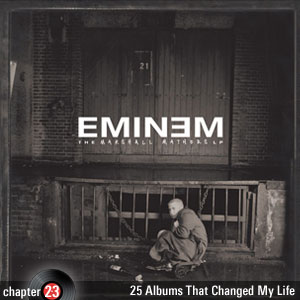
Chapter 23:
Eminem - The Marshall Mathers LP
Age: 18 years oldIt’s hard to accurately pinpoint exactly when this album began to ruin me, because the process was so gradual yet consistent that I didn’t even notice it was happening until the installation was complete and the virus had been configured. And you can’t delete such a thing, as it still spreads through me at a cancerous rate while I type these very words. I have struggled to ween Eminem out of my operating system, but it has been futile, as this album still blatantly pisses on all my musical creations - most notably my recent Coming Down Happy project. Its dark influence told me to write songs about the people I hate, calling them out by name, slaying those who had wronged me with my art, and doing so as viciously as possible. And even though my tummy knows this as wrong, the results have always been beyond stimulating.
However, it was somewhere around this age in particular that the end of my life had become visible. I tried to reject Satan the best I could, but it was all in vain, as he had obtained full ownership over my soul and abused it at his will. Every girlfriend I got would leave me the moment they found out I was plotting their murder. I would take drugs not to have fun anymore, but to escape the voices in my head, and instead of experiencing any euphoric moments, all I would harvest was more hatred. My thoughts had turned bad, and they insisted on rhyming. I stalked celebrities in hope of stealing their fame. I felt nothing when I spat on my immediate company, except for perhaps some sense of entitlement. And I blame so much of this on Eminem, you wouldn't believe. He worked as the blueprint for most of my anti-social and politically incorrect behaviour, taking the steering wheel when I had lost all control.
Make no mistake, for a while I did fight the battle to get myself back, but eventually I grew tired and fell in defeat, giving up on all hope as I did so. I was no longer the main character in my own life, and I wanted out. I wanted to die.
Other life-changing albums related to this entry:
The Streets - A Grand Don't Come for Free

Chapter 24:
The Blood Brothers - ...Burn, Piano Island, Burn
Age: 19 years oldAnd then I broke, with this album delivering the final death punch. It smashed through the last bit of the wall I had built to protect my own personality, and flooded my mind with chaotic crowds of canaries and crows and horses and zeppelins and pedophiles. I couldn’t sleep and spent my nights screaming, wetting myself, regressing back into a child. I was blinded by madness and my own thoughts would tease me, forcing me to look at yellow imagery and surreal worlds that didn’t exist, pointing at graphs which intricately mapped out the loss of my sanity. My friends stopped visiting. The drugs stopped doing anything at all. I tore at my skin trying to remove imaginary scabs and my hair fell out. The final transformation and deterioration of my person had begun, and all the remains of my human crumbled to dust and left me for the wind.
I continued to make music but the process had become so erratic (a direct influence of spazz-heavy albums such as this one) that it didn’t make sense to anyone but me, when it even made sense to me at all. Surprisingly, sometimes this approach had some merit, like when me, Breton and Jimmy formed a band called No Better Ego Trip, and their more standard tastebuds balanced out my deluded absurdity. But more often than not, my art became a mess of unfinished ideas and over-layered sound effects which I found in the bathroom. And soon enough, I lost that too, spending my time doing nothing but waiting for someone to feed me. I needed help, but Satan wasn’t answering my calls, yet his laugh looped in my vision like a damaged record. My purpose had become irrelevant, and I had gone too far. All the while, this album told me to stop resisting; to just let them do what they came here for, because they were going to do it anyway, and it would be much less painful if I cooperated. And so that’s what I did.
I packed up what little I still knew about myself into a hypothetical suitcase, and moved out of my own being, allowing all the terrible things of the world to move in and take me over, rent free. I said goodbye to my body in the full knowledge that I would never see myself again, and that was the last anyone ever heard of me.
Other life-changing albums related to this entry:
The Dillinger Escape Plan - Calculating Infinity
Mr. Bungle - California

Chapter 25:
The Beatles - Sgt. Pepper's Lonely Hearts Club Band
Age: 20 years oldAnd then POP, the dirty bubble of madness surrounding me burst, and I gently floated back into myself, while the rain clouds of my brain parted, revealing a sun which shone brighter than any of the suns before. That sun was The Beatles. It was Sgt. Pepper. It was the best album I’d ever heard, before and since.
What is generally considered to be the greatest release from the band who are generally considered to be the greatest artists ever, they rescued me from the sinking ship that was myself. They danced into my mind with a psychedelic wand, touching each immoral parasite which lived in there, morphing them into happy horses, blissful kites, and attractive traffic wardens, floating in a sky blinded by jewellery. They chased Satan out and welcomed me back inside with open arms, eager to share a brand new outlook. They warned that the filthy drugs were weighing on my posture, instead offering me more friendly substances to be used only in moderation (to which I politely refused, opting in that serenity to quit all chemicals for life, including marijuana). They explained that the female form should be cherished, not objectified, and I began to appreciate women, eventually settling down with a girlfriend I am still with today. They explained that people of different ages, races, and sexual preferences should be revered rather than discriminated against, as they encouraged diversity in our society, and I was convinced. But above all else, they explained to me that life was beautiful, the war I had been fighting was against myself, and the essence of living was LOVE and LOVE alone. My heart softened at this word, and I understood, once again developing affection for my family, for the general population of the world, and most importantly, for me.
Make no mistake: drugs and sex are one hell of a high. But so is music, only perhaps more powerful. And once I’d hit the peak of The Beatles’ catalogue, I knew I’d never get higher, nor did I have any intention of doing so. For with this album came a new level of musical maturity. I was no longer looking for the heaviest or the craziest or the freshest record. Instead, I looked down from my new found pinnacle, then slowly descended the ladder, working backwards through time, collecting classics and studying those who influenced them along the way. And I got better. I rid myself of all the demons and addictions, through finding my musical peace, my centre, my comfort zone. And I've never felt quite as happy as I do now. Thank you, Mr. Beatles. Thank you so much.
Other life-changing albums related to this entry:
Radiohead - In Rainbows
The Smiths - The Queen Is Dead
David Bowie - Hunky Dory
Lily Allen - It's Not Me, It's You
 Epilogue
EpilogueLooking back on my life in such a musical manner did expose a side of the coincidental trippiness Satan never explicitly revealed before, as if he had planted these little jokes only to be discovered now, all this time later. It was weird that my first best friend Richard shared a name with my first introduction to music, Cliff Richard. It was unusual that both Roxette and 2 Unlimited used exclamation points in their album titles, and that (besides ABBA) Ace of Base and Roxette were the most successful bands in Swedish history. Despite being common names, there was the Michael as in George or Jackson, and it’s incredible how many Jon variations cropped up, like Jonas Berggren (Ace of Base); Jon Bon Jovi; Jonathan Davis (Korn); Johnny Kelly (Type O Negative); Johnny Whitney (The Blood Brothers); and John Lennon. Even less common, how about the fact that Peter was not only the name of my best mate for a period back there, but also the name of Type O Negative’s Peter Steele, as well as the drummer for Offspring, Pete Parada. There were 3 Brians back there (Brian “Head” Welsch from Korn, Brian Warner from Marilyn Manson, and Brian Molko from Placebo), and there were 2 David drummers (David Silveria from Korn and Dave Grohl from Nirvana), as well as the 2 Davids I mentioned in my personal life. And finally, there was the lovely Kim, the name I was not only obsessed with in my youth, but also the name of Eminem’s dark muse, becoming the title for his most violent song on the album featured above. I’m not sure what this all means, if anything, but I figured it was worth the mention. Oh, Satan, you joker, you.
Regardless, I do find some relief in the knowledge which comes with age. It seems the older one gets, the less chance some album will come along and fuck everything up. I, for one, am grateful for this. For as this story has shown, to live life perpetually propelled by epiphanies will do your head in, and at the end of the day, becomes quite tiresome and repetitive (not to mention dangerous). Instead of a full-on speed race down the wrong way of the highway, we can now take the scenic cart-ride route - which is less exhilarating, sure, but provides more manageable bite-sized boxes, easier to stack up on top of each other, now reaching higher states in the more gradual sense. We become further difficult to influence, and grow more secure within our musical tastes. We find an area of stability and dig our roots in, still open to changes, but not relying on them to define who we are, mostly because we can't be bothered. And if this is getting old, so be it, I like it. Because even writing this article was far too intense for me at this age, and I wouldn't recommend it to anyone.
the end
Follow @LegoTrip












